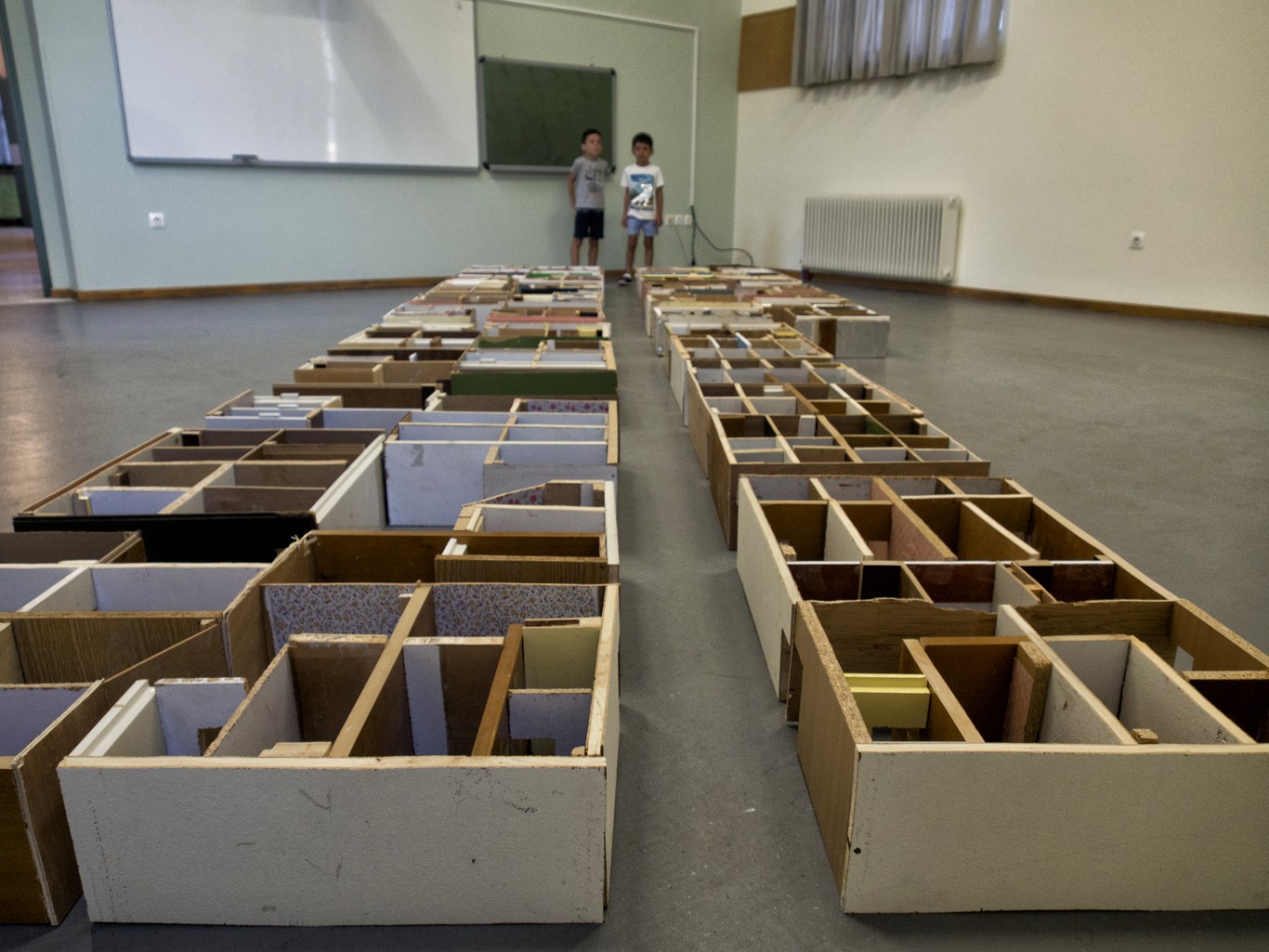information
The Settlement, 2022, used building materials
The Settlement is an installation that represents on scale the floor plan of the refugee settlement in Karlovasi, Samos. It is made with old used building materials and surfaces that are discarded during the process of all kinds of renovations and residential development. Remains of other, new, such residential constructions by contemporary refugees, —- are still found on the island.
The installation seeks to convey the idea of continuous cultural transformation, the constant metamorphosis of materials and their suspension between desolation and reconstruction, of incomplete development plans or their always partial results. Construction, restoration, reconstruction or collapse, desolation and abandonment are moments of a perpetual process of metamorphoses.Likewise, populations experience the same uncertainty, continuous movement and historical transformation in time and history, always following national, political, social, economic and productive plans that are ultimately imperfect.
The little soldier, 2022, slide show and sound installation
Narratives from Makronisos indicate that sometimes rebetika songs were used to lower the morale and attitude of the displaced. One of these songs was Fantaraki by Stellakis Perpiniadis and Giorgos Mitsakis. According to his lyrics, a “boy” has long “received a letter” from his “girl” and is “worried”.He hesitates to ask his captain for “permission” to “find” her, but when he does, the captain will approve heartily. Certainly, in Makronisos few people had the right to grant such a “permission” for leave. Rebetiko, as a genre of popular music, has been, among other things, connected to the feeling of escaping from reality. The dry sound produced by a slide projection machine, repeated and magnified in a way that makes it excruciating, mediates between images of the dry, bare and “hard as silence” landscape of Makronissos. The earth, the ground, here, far from being in a mood to glorify them, compose a dystopia, a place of physical and mental annihilation and martyrdom.
Stills from a movie, 2021, slide show
In this work, the dry and bare landscape is transformed into a terrain of investment, rest, the search for utopia, fun, carelessness and the liberation of sexuality, which is what the plan of post-war mass tourism includes. Images taken from the landscapes of the film “When the fish came to land” (1967) by Michalis Kakogiannis are shown, accompanied by subtitles that correspond to other parts of its script
biography
Kostas Christopoulos (born in 1976) is a visual artist. Since 2018 he is Assistant Professor at the Athens School of Fine Arts. He studied painting and printmaking in the Athens School of Fine Arts and he followed a Master Course in Visual Arts in the same School. He concluded his Ph.D. in the School of Political Sciences, Faculty of Economic and Political Sciences, Aristotle University of Thessaloniki, Greece. He has four solo shows in Greece and participated in various group shows in Greece and abroad. He was also member of artistic groups and co-founder of the contemporary art and literature platform The Symptom Projects based in Amfissa, Greece. He is writing book and art reviews for Greek newspapers, journals, and magazines and is the author of many essays in collective books and art catalogs. He has curated and co-curated group and solo exhibitions. He is member of the Administrative Council of AICA Hellas, the Greek Section of the International Association of Art Critics. Lives and works in Athens.
